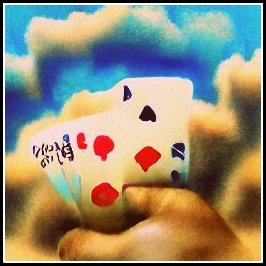(This article was originally published in Wordly Magazine in May 2020. You can read the original article here: https://wordlymagazine.com/2020/10/19/separation-anxiety-a-love-letter-to-deakin/)
In the middle of a once in a lifetime global pandemic, I
find myself wondering how history will remember the events of the last ten
months. From the first cases of Coronavirus detected to full-scale lockdowns
implemented in cities all around the world. I try to imagine myself as an old
man, telling someone younger about my lived experience of an event they’ll most
likely read about in Wikipedia (or some future analogue). As my thoughts
coalesce, one idea rises to the surface—the notion of separation. This year has
been characterised by separations, both personal and professional. But the one
I wish to discuss here is perhaps more mundane—separation from Deakin itself.
It’s difficult to believe it’s been six months since I last set foot on the Deakin campus at Burwood as a student. On my last day, after being told that classes were cancelled, I walked to my car and drove off the premises carrying a queasy premonition about the future. I had no idea when I would be returning.
Looking not unlike a miniature city in the eastern suburbs
of Melbourne, the Deakin campus is comprised of a discordant mixture of modern
architectural shapes, each one unique yet stylistically cohesive. Surrounded by
an ample creek (replete with walkers who generously allow me to pet their
dogs)—it’s my university.
I never realised what a sizeable portion of my personal
identity being a university student constituted. It was how I expended the bulk
of my time and symbolised learning and progress. I was a ‘university student’,
and proudly announced it to anyone who would listen (and sometimes to those who
didn’t!). I relished the day to day routine—driving or catching the tram to
campus and diving into the throng of students, all rushing to and from classes,
moving like the tiny components of a vast machine. It may sound trite, but I
found it exhilarating.
A few semesters ago, when the Gods of scheduling saw fit to
give me an 8 am lecture with no other classes till 3 pm, I spent the entire day
on campus, availing myself of my friends who weren’t busy or unashamedly napping
in our luxuriant library. Sometimes I’d read, or write, or simply perch upon
any number of pieces of plush furniture while watching Netflix on my laptop
(fully aware that I should be using my free time to study!).
In short, I loved being there. Every moment. I never doubted
how fortunate I had been to earn a place there. If our society does contain
privileges, then being educated is surely one of them. For me, the old axiom of
‘not knowing what you have until it’s gone’ was never true. I was determined
to be a university student for as long as possible (the life of an academic
seems particularly appealing to me).
Fast forward six months, and riding my bike through the
empty campus is a surreal experience. Walkways once bursting with
students are now empty, and the entire place is blanketed in eerie silence,
punctuated only by the sound of birds.
Quite different from the emotional fallout of being
separated from Deakin are the real-world, economic consequences of the
pandemic. Staff cuts and redundancies at Deakin have been openly reported in
the media. These job losses represent an incalculable loss of talent and
experience—virtues which I, as a student, would have reaped the benefits of.
Additionally, I also can’t help but be concerned about the sustainability of
the handful of small businesses embedded within the campus, whose steady supply
of student customers has been abruptly severed.
Of course, the basic function of Deakin can continue
unimpeded in the form of online classes. While I’m unenthusiastic about
online learning, I sometimes chastise myself for taking its existence for
granted. It’s a technological innovation that my parents’ generation would
never know. But online classes simply aren’t the same. They can’t compare to
the kinetic, participatory ritual of sitting in a class with other students,
many who have complained about the online resources themselves! While some of
these grievances are no doubt valid, I feel they unfairly ignore the truest
resource Deakin has to offer its students—its teaching staff.
I can readily attest to being the grateful beneficiary of
lecturers and tutors who generously (and willingly) gave their time after
class. I’m indebted to the teaching staff who cared enough to help me—the
stupidest of students—understand difficult concepts (Mervyn, if you’re reading
this, I passed my Statistics exam thanks to your help!).
While I’ve taken lengths to extol the virtues of the Deakin
campus itself, I would humbly offer that Deakin is more than a series of
buildings—more than an institution. Deakin is the people, students,
teachers, and staff from whom this unfortunate circumstance has kept us so
painfully apart. I still hold out hope for next year, playfully imagining
myself power walking across the crossbridge from the HE building. I’m probably
late for class but have still managed to find time to purchase a takeaway
coffee.
I miss being at Deakin, and I know I’m not the only one.
Surprisingly, as a child who didn’t always enjoy formal education, not a day
goes by now when I don’t think to myself, ‘I can’t wait to get back to school.’


No comments:
Post a Comment